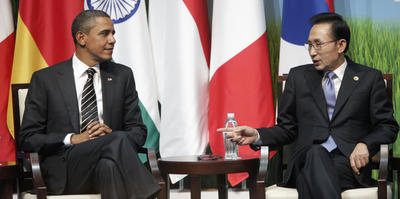It is a foundational tactic supporting a strategy that was originally developed when the US decided to join the East Asia Summit. At that time, the US calculus went like this:
- The US must be at the table as new security and trade architecture is created in Asia;
- The US should not only be present but be in a position to lead;
- ASEAN will be the core or as Secretary of State Clinton said ‘the fulcrum’ of any new regional structure;
- Therefore, the US must strengthen ties with ASEAN by investing in a strong and integrated ASEAN, consistent with the region’s own goals as laid out in the ASEAN charter.
This foreign policy prism explains the US’ moves in the region over the past six months. On the basis of this approach, the US has signed a Comprehensive Partnership and made a commitment to improving military to military ties with Indonesia. After all, Indonesia is the incoming ASEAN chair, with the largest economy and population in ASEAN. Similarly, the US has moved to widen and deepen ties with Vietnam, and has transformed its relationship with Malaysia into a new partnership. And lastly, the US has introduced the Lower Mekong Initiative, conducting joint training exercises in Thailand, the Philippines and elsewhere around the region.
The security and political part of this effort is going well. The missing link is trade, which has seemed a step too far for the Obama administration. The turning point was to be the visit to Seoul, when the President, newly focused on an issue that could be a bipartisan winner and politically marketable to a US electorate screaming out for jobs, was to use his leadership and strong bond with Republic of Korea President Lee Myung-bak to leave Seoul with a KORUS pact he would take to Congress.
Instead, the leaders could not resolve the remaining issues and gave their negotiators more time to come to agreement. Generally, meetings between leaders are action forcing events that generally force bureaucracies to push through and achieve the desired goal. One wonders if the remaining issues will be easier to resolve having survived the pressure-cooker of the president’s visit.
And KORUS is a keystone for the US thrust on trade in Asia. Without KORUS, prospective US partners in the Transpacific Partnership (TPP) negotiation will not be able to accept that the US has the political will to complete and pass any kind of agreement. Potentially, this might lead to the TPP negotiations losing focus. This in turn would rob APEC of its chief current task, and, because the TPP is being designed as a potential founding stone for a future Free Trade Area of the Asia Pacific, could potentially mean the loss of an APEC Free Trade Agreement.
Thus, the stakes are high for the US and Korea to quickly recover KORUS. The US cannot proceed further in Asia without a forward-leaning leadership posture on trade.
Ernest Z. Bower is a senior adviser and director of the Southeast Asia Program at the Center for Strategic and International Studies in Washington, D.C.
This article was first published here by CSIS.

